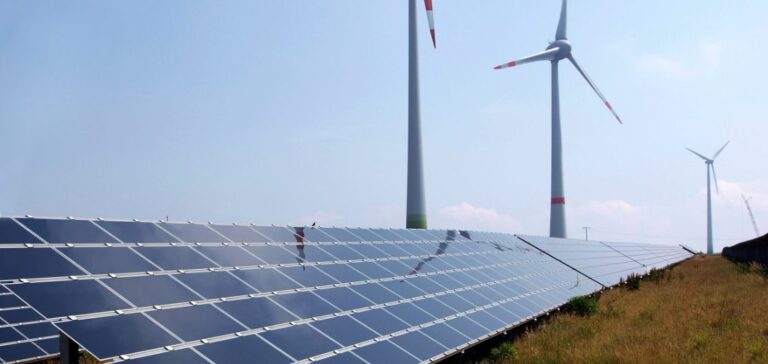Global investments in the low-carbon energy transition reached unprecedented levels in 2024, according to BloombergNEF’s report.
Record Global Investments
The analysis reveals an 11% increase compared to the previous year, bringing the total to 2.1 trillion dollars. The key sectors include electrified transport, renewable energy, and the modernization of power grids. The report specifies that investments in energy transition technologies, while on the rise, show a growth rate lower than in previous years, when they varied between 24% and 29%.
Investments by Sector
The electrified transport sector, incorporating electric vehicles, two-wheelers, and charging infrastructure, attracted 757 billion dollars. This amount underlines the importance given to low-carbon mobility in the global decarbonization strategy.
Investments in renewable energy amounted to 728 billion dollars, including projects in wind energy (both onshore and offshore), solar, as well as sectors such as biofuels and biomass. Two other areas, power grids and energy storage, attracted 390 billion dollars respectively, emphasizing the need for a robust infrastructure to support the transition.
Key Figures
Sectoral performance highlights strategic investments aimed at supporting the growth of production and distribution capacities. This dynamic reflects the willingness of financial actors to address the challenges of the energy transition on a global scale.
China’s Performance
China stands out by recording 818 billion dollars in investments, a 20% increase compared to 2023. This figure surpasses the combined investments made by the United States, the United Kingdom, and the European Union, indicating Beijing’s leading position in this transformation.
Albert Cheung, Deputy CEO of BloombergNEF (Bloomberg New Energy Finance), emphasizes that despite this record, further efforts are necessary, particularly in industrial decarbonization, hydrogen, and carbon capture.
Transition Prospects
Projections indicate that global investments will need to average 5.6 trillion euros per year between 2025 and 2030 to approach the net-zero goal by 2050, in line with the Paris Agreement. These figures illustrate the complexity of the challenges to be met, even though the trajectory initiated is encouraging for sustaining progress in the energy transition.





















